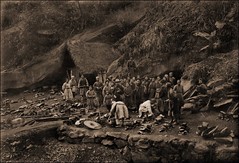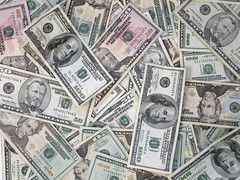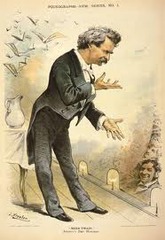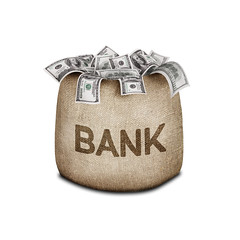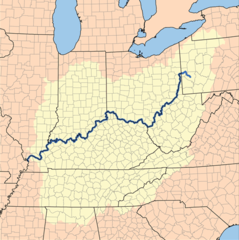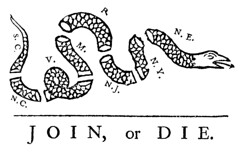| 9090631801 | Federalist | Political party created in the 1790s led by Alexander Hamilton; favored a stronger national government; supported primarily by the bankers and moneyed interests |  | 0 |
| 9090631802 | Democratic-Republicans | Political party created in the 1790's; led by Thomas Jefferson; favored limited government and state rights; supported primarily by the "common man" |  | 1 |
| 9090631803 | Election of 1800 | (AKA Revolution of 1800) election that led to a peaceful transfer of power from the Federalist party to the Democratic Republican Party |  | 2 |
| 9090631804 | Hartford Convention, 1814 | Meeting of Federalists during the War of 1812 discuss strategy to gain more power in government; viewed as unpatriotic by many; as a result, the Federalist Party was no longer a significant force in American politics |  | 3 |
| 9090631805 | Era of Good Feelings | Term used to describe the time period after the 2nd Party System in the United States after the Federalist Party fell from the national stage, leaving only the Democratic Party; associated with the presidency of James Monroe |  | 4 |
| 9090631806 | Democrats | Political party that brought Andrew Jackson into office in 1829; part of the 2nd Party System of the United States; supported Jeffersonian ideas of limited government and individualism; drew its support from the "common Man" |  | 5 |
| 9090631807 | Whig Party | Political Party created in 1834 as a coalition of anti-Jackson political leaders and dedicated to internal improvements funded by the national government |  | 6 |
| 9090631808 | Andrew Jackson | Leader of the Democrats who became the seventh president of the US (1829-1837); known for his opposition to the 2nd Bank of the US, the Indian Removal Act, and opposition to nullification |  | 7 |
| 9090631809 | Henry Clay | Leader of the Whig Party who proposed an "American System" to make the United States economically self-sufficient, mostly through protective tariffs; worked to keep the Union together through political compromise |  | 8 |
| 9090631810 | Nullification Crisis (1832-1833) | After South Carolina declared the federal tariff null and void, President Jackson obtained a Force Bill to use military actions against South Carolina; ended with a compromise to lower tariffs over an extended time; overall significance was the challenge of states to ignore federal law (later on with laws regarding slavery). |  | 9 |
| 9090631811 | John C. Calhoun | South Carolina political leader who defended slavery as a positive good and advocated the doctrine of nullification, a policy in which state could nullify federal law. |  | 10 |
| 9090631812 | John Marshall | Appointed to the Supreme Court by John Adams in 1801; served as a chief justice until 1835; legal decisions gave the Supreme Court more power, strengthened the federal government, and supported protection of private property. |  | 11 |
| 9090631813 | Cotton Belt | Southern region in the US where most of the cotton is grown/deep; stretched from South Carolina to Georgia to the new states in the southwest frontier; had the highest concentration of slaves |  | 12 |
| 9090631814 | Judicial Review | The power of the Supreme Court to review the constitutionality of laws passed by Congress |  | 13 |
| 9090631815 | Market Economy | Economic system based on the unregulated buying and selling of goods and services; prices are determined by the forces of supply and demand |  | 14 |
| 9090631816 | Embargo Act (1807) | Passed by President Jefferson in order to pressure Britain and France to stop impressment and support the American rights to free trade with the other; a government-order ban on international trade; went into effect in 1808 and closed down virtually all U.S. trade with foreign nations; led to steep depression in the economy |  | 15 |
| 9090631817 | Panic of 1819 | Financial panic that began when the Second Bank of the US tightened credit and recalled government loans after the price of cotton dropped |  | 16 |
| 9090631818 | Second Bank of the United States (1816) | Privately owned bank that operated as both a commercial and fiscal agent for the US government; established in 1816 under a charter that was supposed to last 20 years; Andrew Jackson was critical of the bank and its potential for corruption; ended when Jackson vetoed the extension of its charter and won reelection in the process |  | 17 |
| 9090631819 | Tariff of 1816 | First protective tariff in US history; designed primarily to help America's textile industry |  | 18 |
| 9090631820 | Tariff of Abominations 1828 | Tariff with such high rates that it set off tension between northerners and southerners over tariff issues (called the Nullification Crisis) |  | 19 |
| 9090631821 | Panic of 1837 | Economic collapse caused primarily by President Jackson's destruction of the Second Bank of the United States |  | 20 |
| 9090631822 | Slave Codes | Laws that established the status of slaves denying them basic rights and classifying them as the property of slaveholders |  | 21 |
| 9090631823 | Second Great Awakening | An upsurge in religious activity that began around 1800 and was characterized by emotional revival meetings; led to several reform movements (temperance, abolition) designed to perfect society with religious morals |  | 22 |
| 9090631824 | Charles Finney | Presbyterian minister who is credited and is known as the "Father of modern Revivalism"; advocated the abolition of slavery and equal education for women and African Americans |  | 23 |
| 9090631825 | Elizabeth Cady Stanton | Advocate of women right's, including the right to vote; organized (with Lucretia Mott) the first women's rights convention at Seneca Falls, NY |  | 24 |
| 9090631826 | Dorothea Dix | Pioneer in the moment for special treatment for the mentally ill |  | 25 |
| 9090631827 | Horace Mann | Massachusetts educator who called for publicly funded education for all children; called the "Father of Public Education in America" |  | 26 |
| 9090631828 | Utopian Communities | Idealistic reform movement based on the belief that a perfect society could be created on Earth; significant Utopian experiments were established at New Harmony, Indiana, Book Farm, Massachusetts and the Oneida Community in New York; usually such attempts were short-lived |  | 27 |
| 9090631829 | American Colonization Society (established 1817) | Organization established to end slavery gradually by helping individual slave owners liberate their slaves and then transport the freed slaves to Africa (Liberia) |  | 28 |
| 9090631830 | William Lloyd Garrison | Radical abolitionist in Massachusetts who published the liberator, an antislavery newspaper |  | 29 |
| 9090631831 | Sojourner Truth | Former slave (freed in 1827) who became a leading abolitionist and feminist |  | 30 |
| 9090631832 | Hudson River School 1825-1875 | The first native school of painting in the US; painted primarily landscapes; themes included deep nationalism, grandeur of nature, and transcendentalism |  | 31 |
| 9090631833 | Transcendentalism | Philosophical and literary movement that believed God existed within human being and nature; believed intuition was the highest source of knowledge; advocated for introspection by surrounding oneself with nature |  | 32 |
| 9090631834 | Ralph Waldo Emerson | Philosopher, writer, and poet who became a central figure in the Transcendalist movement in American |  | 33 |
| 9090631835 | Henry David Thoreau | Writer and naturalist; with Ralph Waldo Emerson, he was one of America's best known transcendentalists |  | 34 |
| 9090631836 | Richard Allen | African American minister who established the first independent African American denomination in the US, the African Methodist Episcopalian Church |  | 35 |
| 9090631837 | Samuel Slater | Known as the "Father of the American Industrial Revolution"; brought British textile technology to the United States to create the first factory |  | 36 |
| 9090631838 | John Deere | Invented the steel plow in 1837, which revolutionized farming; the steel plow broke up soil without the soil getting stuck to the plow |  | 37 |
| 9090631839 | Lowell System | Method of factory management that evolved in the textile mills of Lowell, MA |  | 38 |
| 9090631840 | Erie Canal (1817-1825) | 350 mile canal built by the state of NY that stretched from Buffalo to Albany; the canal revolutionized shipping in NY and opened up new markets (evidence of the Market Revolution) |  | 39 |
| 9090631841 | National Road (1811) | AKA Cumberland Road; first significant road built in the US at the expense of the federal government; stretched from the Potomac River to the Ohio River |  | 40 |
| 9090631842 | Mason-Dixon Line | Boundary between PA and MD that marked the division between free and slave states before the Civil War |  | 41 |
| 9090631843 | Cult of Domesticity | The belief that a woman's proper role in life was found in domestic pursuits (raising children, taking care of the house); strongly believed by many throughout the 19th century |  | 42 |
| 9090631844 | Louisiana Purchase (1803) | U.S. purchased the Louisiana Territory from France for $15 million, doubling the size of the U.S. and giving the U.S. full control of the Mississippi River |  | 43 |
| 9090631845 | Lewis and Clark expedition (1804-1806) | Expedition to explore the Louisiana Territory led by Meriwether Lewis and William Clark |  | 44 |
| 9090631846 | War Hawks | Members of Congress from the West and South elected in 1810 who wanted war with Britain in the hopes of annexing new territory and ending British trade with the Indians of the Northwest |  | 45 |
| 9090631847 | War of 1812 | 1812-1815, War between the U.S. and Great Britain caused primarily by the perceived British violation of American neutral rights on the high seas (impressment); ended with an agreement of "status quo ante" (a return to how things were before the war) |  | 46 |
| 9090631848 | Adams-Onis Treaty (1819) | Treaty between the U.S. and Spain that ceded Florida to the U.S |  | 47 |
| 9090631849 | Monroe Doctrine (1823) | President Monroe's unilateral declaration that the Americas would be closed to further European colonization and that the U.S. would not allow European interference in the affairs of the Western Hemisphere; in return the U.S. pledged to stay out of European conflicts and affairs; significant foreign policy state that lasted through most of the 19th century |  | 48 |
| 9090631850 | Oregon Treaty of 1846 | After years of conflict over ownership of the Pacific Northwest, the U.S. and England established the boundary at 49° latitude, essentially splitting the Oregon Country down the middle |  | 49 |
| 9090631851 | Manifest Destiny | Popular belief amongst early-19th century Americans that the U.S. was destined to expand across the North American continent, that this belief was obvious, and that God willed it to take place |  | 50 |
| 9090631852 | Tecumseh | Shawnee leader who attempted to establish an Indian confederacy among tribes from around the continent that he hoped would be a barrier to white expansion; defeated at the Battle of Tippecanoe in 1811 by U.S. forces led by General William Henry Harrison, slowing the momentum of Pan-Indian unity |  | 51 |
| 9090631853 | Indian Removal Act (1830) | Law that provided for the removal of all Indian tribes east of the Mississippi and the purchase of Indian lands for white resettlement |  | 52 |
| 9090631854 | Worcester v. Georgia (1832) | A Supreme Court ruling that declared a state did not have the power to enforce laws on lands that were not under state jurisdiction; John Marshall wrote that the state of Georgia did not have the power to remove Indians; this ruling was largely ignored by President Andrew Jackson |  | 53 |
| 9090631855 | Trail of Tears (1838) | Forced march of the Cherokee people from Georgia to Indian Territory in the winter; a large percentage of Cherokee died on the journey |  | 54 |
| 9090631856 | American Anti-Slavery Society | Abolitionist society founded by William Lloyd Garrison - included Frederick Douglass as a significant leader of the society |  | 55 |
| 9090631857 | Romanticism | An artistic and intellectual movement characterized by its emphasis on emotion and individualism as well as glorification of all the past and nature, preferring the medieval rather than the classical |  | 56 |
| 9090631858 | The American System | Consisted of three mutually reinforcing parts: (1) a tariff to protect and promote American industry; (2) a national bank to foster commerce; (3) federal subsidies for roads, canals, and other "internal improvements" to develop profitable markets for agriculture; supported heavily by Henry Clay |  | 57 |
| 9090631859 | Missouri Compromise (1820) | Admitted Missouri as a slave state and Maine as a free state, maintaining the balance between slave and free states in representation in the federal government; established a geographic line that would determine whether new states (made from the western territories) would be added to the union as slave or free states |  | 58 |
| 9090631860 | Spoils System | Public offices given as a reward for political support. Most iconically used by Andrew Jackson after his first election, which then became a precedent for future federal leaders. |  | 59 |
| 9090631861 | Marbury v. Madison (1803, Marshall) | The Court established its role as the arbiter of the constitutionality of federal laws, the principle is known as judicial review. |  | 60 |
| 9090631862 | McCulloch v. Maryland (1819, Marshall) | The Court ruled that states cannot tax the federal government, i.e. the Bank of the United States; the phrase "the power to tax is the power to destroy"; confirmed the constitutionality of the Bank of the United States. |  | 61 |
| 9090631863 | Johnson v. McIntosh (1823, Marshall) | Established that Indian tribes had rights to tribal lands that preceded all other American law; only the federal government could take land from the tribes. |  | 62 |
| 9090631864 | Cherokee Nation v. Georgia (1831, Marshall) | "The conditions of the Indians in relation to the United States is perhaps unlike that of any two people in existence," Chief Justice John Marshall wrote, "their relation to the United States resembles that of a ward to his guardian. . .(they were a) domestic dependent nation." Established a "trust relationship" with the tribes directly under federal authority. |  | 63 |
| 9090631865 | interchangeable parts | Parts that were identical and which could be substituted for one another; developed by Eli Whitney for the manufacturing of muskets; became a hallmark of the American factory system |  | 64 |
| 9090631866 | turnpike | A road in which tolls were collected at gates set up along the road |  | 65 |
| 9090631867 | tariff | A tax imposed on imported goods and services. Tariffs are used to restrict trade, as they increase the price of imported goods and services, making them more expensive to consumers. |  | 66 |
| 9090631868 | sectionalist | Person devoted to the cause of a particular section of the country (usually North or South), as opposed to the nation as a whole |  | 67 |
| 9090631869 | embargo | A government order prohibiting commerce in or out of a port |  | 68 |
| 9090631870 | nationalism | A strong devotion to the nation as the central political entity, often in a narrow or aggressive fashion; usually involves feelings of superiority over other nations or ideaologies |  | 69 |
| 9090631871 | internal improvements | The basic public works, such as roads and canals, that create the structure for economic development. |  | 70 |
| 9090631872 | depression | In economics, a severe and often prolonged period of declining economic activity, rising unemployment, and falling wages and prices. |  | 71 |
| 9090631873 | boom | In economics, a period of sudden, spectacular expansion of business activity or prices. |  | 72 |
| 9090631874 | constituents | The body of voters or supporters in a district, regarded as a group. |  | 73 |
| 9090631875 | hard money | Gold and Silver coins, as distinguished from paper money. |  | 74 |
| 9090631876 | deference | The yielding of opinion to the judgment of someone else. |  | 75 |
| 9090631877 | subversive | Tending to corrupt, overthrow, or destroy something established. |  | 76 |
| 9090631878 | puritanical | Extremely or excessively strict in matters of morals or religion. |  | 77 |
| 9090631879 | usurpation | The act of seizing, occupying, or enjoying the place, power, or functions of someone without right. |  | 78 |
| 9090631880 | mudslinging | Malicious, unscrupulous attacks against an opponent. |  | 79 |
| 9090631881 | machine | A political organization, often controlled through patronage or spoils. |  | 80 |
| 9090631882 | incumbent | The person currently holding an office. |  | 81 |
| 9090631883 | impost | A tax, particularly a tariff or duty on imported goods. | 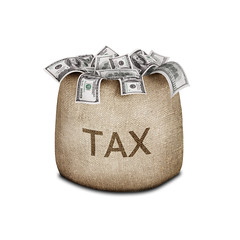 | 82 |
| 9090631884 | appeasement | The policy of giving in to demands of a hostile of dangerous power in hope of avoiding conflict. |  | 83 |
| 9090631885 | prejudice | Unreasonable suspicion, bias, or hatred directed at members of a group. |  | 84 |
| 9090631886 | ritual | A set form or system of ceremonies, often but not necessarily religious. |  | 85 |
| 9090631887 | evangelical | Concerning religious belief, commonly Protestant, that emphasizes personal salvation, individual and voluntary religious commitment, and the authority of Scripture. |  | 86 |
| 9090631888 | platform | A statement of the principles or positions of a political party. |  | 87 |
| 9090631889 | denominations | In American religion, the major branches of Christianity, organized into separate national churches structures; e.g., Presbyterians, Baptists, Disciples of Christ. |  | 88 |
| 9090631890 | prolific | Producing a large number of something. |  | 89 |
| 9090631891 | temperance | Moderation, or sometimes total abstinence, as regards drinking alcohol. |  | 90 |
| 9090631892 | nativist | One who advocates favoring native-born citizens over aliens or immigrants. |  | 91 |
| 9090631893 | factory | An establishment for the manufacturing of goods, including buildings and substantial machinery. |  | 92 |
| 9090631894 | liability | Legal responsibility for loss or damage. |  | 93 |
| 9090631895 | incorporation | The formation of individuals into a legally organized group, usually a business. |  | 94 |
| 9090631896 | labor union | An organization of workers—usually wage-earning workers—to promote the interests and welfare of its members, often by collective bargaining with employers. |  | 95 |
| 9090631897 | strike | An organized work stoppage by employees in order to obtain better wages, working conditions, and so on. |  | 96 |
| 9090631898 | capitalist | An individual or group who uses private property to produce goods for profit in an open market. |  | 97 |
| 9090631899 | posterity | Later descendants or subsequent generations. |  | 98 |
| 9090631900 | productivity | In economics, the relative capacity to produce goods and services, measured in terms of the number of workers and machines needed to create goods in a certain length of time. |  | 99 |
| 9090631901 | transient | Referring to a person without a fixed or long-term home or job; a migrant. |  | 100 |
| 9090631902 | polygamy | The practice or condition of having two or more spouses at one time. |  | 101 |
| 9090631903 | theocracy | Literally, rule by God, the term is often applied to a state where religious leaders exercise direct or indirect political authority. |  | 102 |
| 9090631904 | zealot | One who is carried away by a cause to an extreme or excessive degree. |  | 103 |
| 9090631905 | communistic | Referring to the theory or practice in which the means of production are owned by the community as a whole. |  | 104 |
| 9090631906 | nonconformist | One who refuses to follow established or conventional ideas or habits; often referred to as part of a "counter-culture". |  | 105 |
| 9090631907 | providence (providencial) | Under the care and direction of God or other benevolent natural or supernatural forces. |  | 106 |


















































